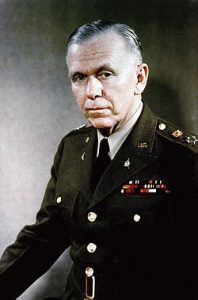
Bulletin #40 - Oct 2011
Book Review in The London Evening Standard: “Dinner with Churchill”

Winston Churchill, Parliament Square, London © Sue Lowry & Magellan PR
October 13, 2011
By Dominic Sandbrook
Dinner with Churchill: Policy Making at the Dinner Table, By Cita Stelzer
Short Books, £20
THE LONDON EVENING STANDARD, 6 October 2011—Asked to choose their ideal dinner-party guest, many people tend to pick Winston Churchill.
He would undoubtedly make a fitting companion, for as Cita Stelzer reminds us in this amusing and unpretentious little book, he was one of modern history’s great trenchermen. “It is well to remember,” he wrote at the turn of the 20th century, “that the stomach governs the world.”
It certainly governed the great man himself. When, with Britain gripped by wartime rationing, Churchill suggested “a series of Cabinet banquets, a sort of Salute the Stomach week”, few of his colleagues could have been very surprised. Even in the depths of wartime, meals were gargantuan occasions. At a “small lunch” with the King in March 1941, for instance, Churchill put away “fish patty, tournedos with mushrooms on top and braised celery and chipped potatoes, peaches and cheese to follow”, washed down with sherry beforehand, white wine with the food and port and brandy to follow.

2024 International Churchill Conference
Dinners were invariably lavish: at Chequers, they kicked off with drinks at 8.30pm, before an hour’s dedicated munching and then a further couple of hours while Churchill lectured his male guests or made them watch a film. Finally, at about one in the morning, the Prime Minister would turn to his exhausted officials. “Now,” he would say, “down to business!”
Although Stelzer’s book nominally focuses on “dinner party diplomacy”, with chapters on eight diplomatic meals from Newfoundland to Potsdam, this is really an excuse for a familiar but entertaining assortment of Churchill anecdotes.
Although he was rarely drunk, his booze intake was genuinely prodigious. Off to cover the Boer War as a young reporter in 1899, he took 40 bottles of wine, 18 bottles of 10-year-old Scotch and 12 bottles of Rose’s Old Lime Juice. Although he rarely finished his cigars, he smoked about nine of them a day, a heroic total by any standards.
And even at the age of 74, his picnic habits would put lesser men to shame: his hamper for a day-trip in Morocco, for example, included poached eggs, two hams in aspic, two slices of cold beef, a cold chicken, potato salad, bread and butter, two fruit tarts, cheese, oranges and “lots of wine and brandy”.
From a culinary perspective, foreign trips could be a trial. Visiting the White House at the end of 1941 -almost incredibly, he stayed for three weeks – Churchill was taken aback to be served sauerkraut and pigs’ knuckles by Roosevelt’s abysmal housekeeper, generally considered the worst in presidential history. He made up for it at breakfast, scoffing vast quantities of bacon and eggs, often washed down with spirits. Visiting Stalin in Moscow a few months later, he put away sturgeon in champagne, suckling lamb, turkey, chicken and partridge, though afterwards he proclaimed the food “filthy”. Stalin’s appetite was equally impressive. “He offered me the head of a pig,” Churchill recalled. “With a knife he cleaned out the head … He then cut pieces of flesh from the cheeks of the pig and ate them with his fingers.”
The great irony in all this was that although Churchill was a terrific guest, he was a non-existent cook. Friends recalled that not only could he not boil an egg, he could not even boil a kettle. Like so many men of his class and generation, he was used to being waited on hand and foot, and though he claimed to like “plain food”, Stelzer’s selection of menus tells a different story. Whether Churchill ever realised how the other half ate remains very doubtful. “Not a bad meal, not a bad meal,” he remarked when shown the latest rationing plans after the war.
“But these are not rations for a meal or even a day,” an embarrassed colleague explained. “These are for a week!”
Subscribe
WANT MORE?
Get the Churchill Bulletin delivered to your inbox once a month.



